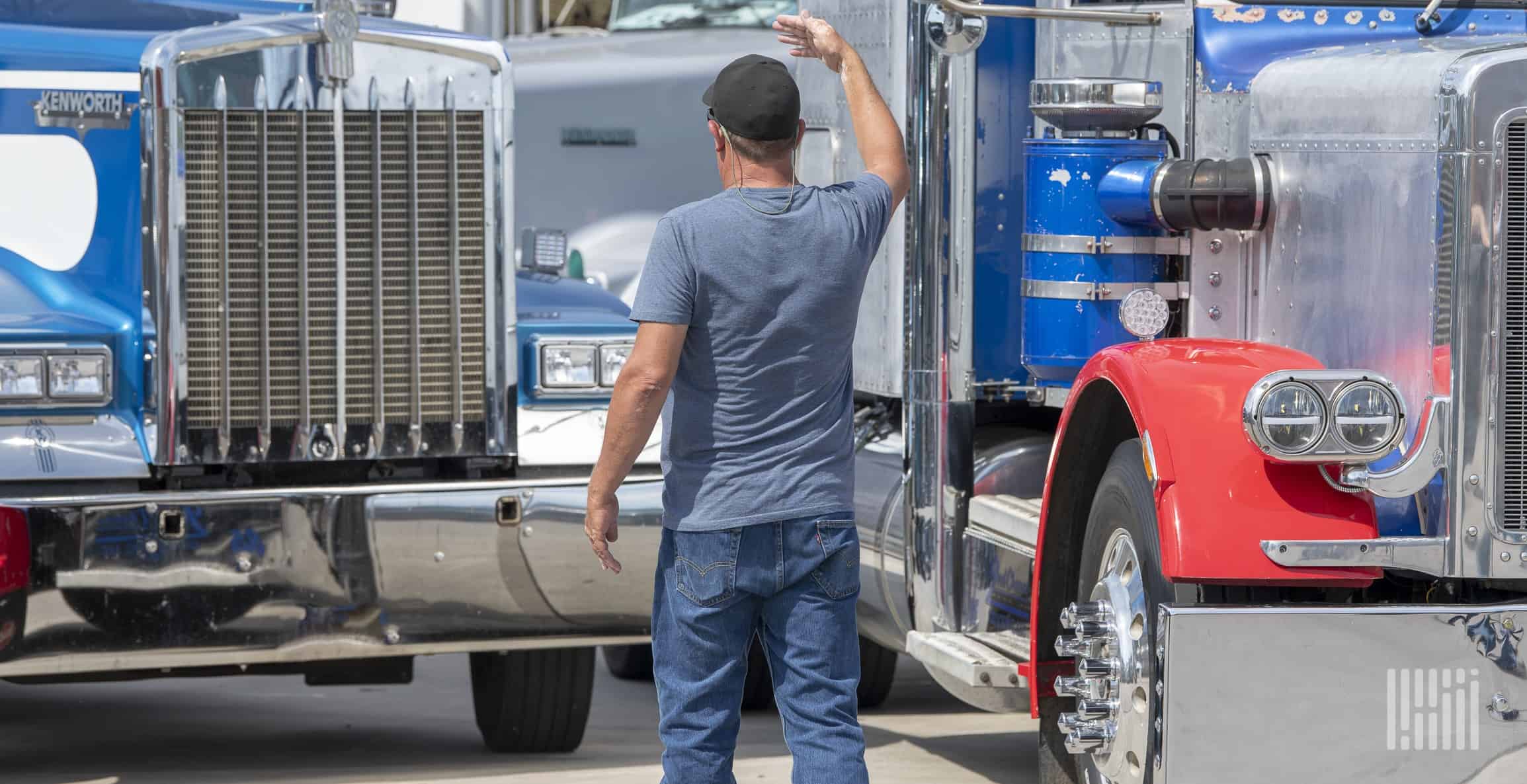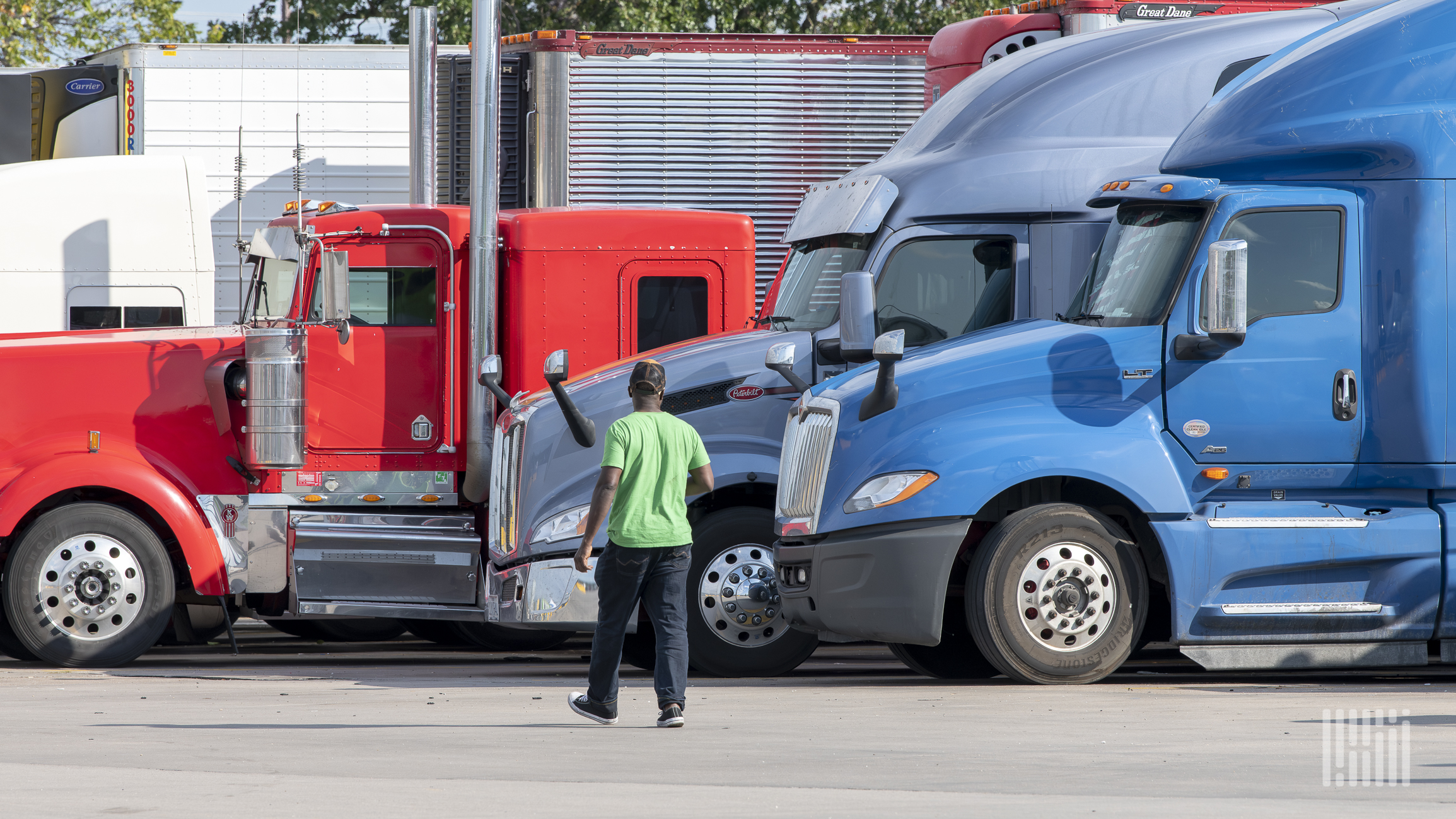The only way to begin a long, rewarding career in the trucking industry is by obtaining a CDL. And while getting a CDL can be a time-consuming process, the benefits can be immense. But is getting a CDL and becoming a truck driver the right fit for you?
That’s what we’ll explore in this article. Keep reading to learn how to get a license, which type of permit you need, and what to keep in mind as you answer the question ‘is getting a CDL worth it’ for yourself.
Key takeaways
- A CDL, or commercial driver’s license, allows you to drive large trucks and buses.
- There are three classes of CDLs, with Class A allowing you to drive the most types of vehicles.
- To get a CDL, you’ll need to attend truck driving school for 3-7 weeks. This typically costs $1,000-8,000, unless you attend a company-sponsored CDL training program.
- The average salary for truck drivers is $70,000 per year.
- Getting a CDL can be time-consuming and expensive, but is nevertheless often worth the effort, depending on your career goals, preferences, and needs.
What is a CDL?
A Commercial Driver’s License (CDL) is a specialized license required to operate large or heavy vehicles used in commerce, such as trucks, buses, and trailers. It is mandatory for drivers whose vehicles exceed certain weight limits, transport hazardous materials, or carry more than 16 passengers. CDLs are categorized into three classes: Class A, Class B, and Class C, each defining the type and size of vehicles the license holder is permitted to drive.
Obtaining a CDL involves meeting specific eligibility requirements and completing a series of tests to ensure safe operation of commercial vehicles. These tests include a written knowledge exam and a practical skills test that assesses the driver’s ability to inspect, control, and drive a commercial vehicle. Additional endorsements, such as those for hazardous materials or passenger transport, can be added to the CDL after completing further testing.
How do I get a CDL license?
1. Determine the type of CDL you need
- Class A: The CDL A license is for operating vehicles with a gross combination weight rating (GCWR) of 26,001 pounds or more, including a towed trailer weighing more than 10,000 pounds (e.g., tractor-trailers, tankers, flatbeds).
- Class B: This is for operating commercial motor vehicles (CMV) with a GCWR of 26,001 pounds or more, but towing less than 10,000 pounds (e.g., school buses, garbage trucks, box trucks).
- Class C: Commercial learners need a Class C license to operate CMVs designed to transport 16 or more passengers or hazmat cargo.
2. Meet driver eligibility requirements
- Age: Be at least 18 years old for intrastate driving or 21 for interstate driving.
- License: Hold a valid non-commercial driver’s license (Class D).
- Medical exam: Pass a Department of Transportation (DOT) physical exam and obtain a certificate from a medical examiner.
3. Prepare for the CDL permit
- Study: Obtain your state’s CDL manual and study the rules, vehicle types, and endorsements.
- Tests: Take the general knowledge written test to get a Commercial Learner’s Permit (CLP). You may also need to pass endorsement tests for skills like air brakes or hazardous materials.
4. Attend truck driving school
Enroll in a truck driving program to learn skills like:
- Backing up and turning a commercial vehicle
- Vehicle inspection procedures
- Road driving techniques
Entry-level driver training courses usually last 3–7 weeks, and costs range from $1,000 to $8,000. Some employers offer sponsorships or reimbursement for the cost of school.
5. Practice driving
Use your CLP to practice driving under the supervision of a CDL holder. Gain experience with vehicle maneuvers and road safety practices.
6. Schedule and pass the CDL skills test
The CDL skills test is divided into three sections:
- Vehicle inspection: Demonstrate your knowledge of the vehicle’s systems and parts.
- Basic controls: Perform maneuvers like backing up, turning, and parking.
- Road test: Drive on public roads to demonstrate your ability to handle the vehicle safely.
7. Pay fees and obtain your CDL
Once you pass the skills test, pay the necessary fees to receive your CDL. Keep in mind any additional endorsements you may need based on the type of driving job you’re pursuing.
After receiving your CDL, it’s time to apply for truck driving jobs! Applicants can find a wide variety of opportunities online.
Do truckers get paid well?
Entry-level company drivers typically earn $40,000-$50,000 annually, while experienced drivers can make $65,000-$85,000+ depending on their role and route type. Pay can be significantly higher for specialized roles, owner operators, or drivers working in high-demand sectors like energy or oversized loads.
Is truck driving stressful?
Truck driving involves numerous stressors including tight delivery schedules, weather conditions, traffic, complex regulations, and extended periods away from family. However, many drivers find ways to manage these challenges and enjoy the independence and variety the job offers. Stress levels varying significantly based on factors like route type (local versus over-the-road) and company culture.
7 factors to consider when getting a commercial license
When getting a commercial driver’s license (CDL), several factors should be carefully considered to ensure the process aligns with your career goals, lifestyle, and financial situation:
- Time commitment: CDL training programs typically last 3-7 weeks, depending on the type of license and the training provider. Ensure you can dedicate the necessary time to complete the program and prepare for exams.
- Cost of training: The cost of CDL training varies widely, ranging from $1,000 to $8,000. Consider how you’ll finance this, whether through personal savings, loans, or sponsorships offered by trucking companies, some of which require employment commitments in return.
- Medical and background requirements: CDL applicants must pass a Federal Motor Carrier Safety Association (FMCSA) physical exam to ensure they are fit to drive. Additionally, thorough background checks are conducted, including reviews of criminal records, drug and alcohol history, and driving records. A problematic background may result in your disqualification.
- Endorsements: Depending on your career goals, you might need additional endorsements. Each endorsement requires extra study, testing, and fees.
- Driving hours and lifestyle: A career involving a CDL permit often demands long hours on the road, which can impact work-life balance. Consider how extended travel and irregular schedules may fit with your lifestyle.
- Career opportunities: Different CDL classes lead to specific career paths. Research the job market and opportunities available for the type of CDL you plan to obtain.
- Sponsorships and obligations: Some companies sponsor CDL training, reducing upfront costs. However, these programs often come with contractual obligations, such as a required period of employment or non-compete restrictions. Ensure you’re comfortable with the terms before committing.
By evaluating these factors, you can make an informed decision and set yourself up for success in your truck driving career.
Are you up to the test of becoming a truck driver?
So, is getting your CDL worth it? The process of earning a CDL may seem daunting, but doing so lays the foundation for a valuable career as a truck driver. Trucking jobs offer flexibility with a respectable salary. If a rewarding new career is what you’re looking for, getting a CDL is well worth the effort.
And when you’re ready, the trucking job of your dreams will be right here waiting for you.
FAQ
Owner operators typically have the highest earning potential, with the most successful ones often making $150,000-$200,000+ annually after expenses. Specialized hauling jobs like hazmat, tanker, or oversized load transportation also offer premium pay rates, with experienced drivers in these roles frequently earning six-figure incomes.
A Class A CDL is generally the best choice as it allows you to drive the widest range of vehicles and offers the highest earning potential.
Whether a Class A CDL is worth it depends on your individual circumstances and career goals. Consider factors like your desired lifestyle, risk tolerance, and financial needs.




